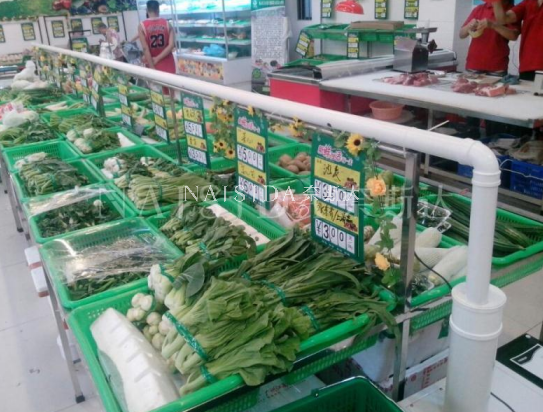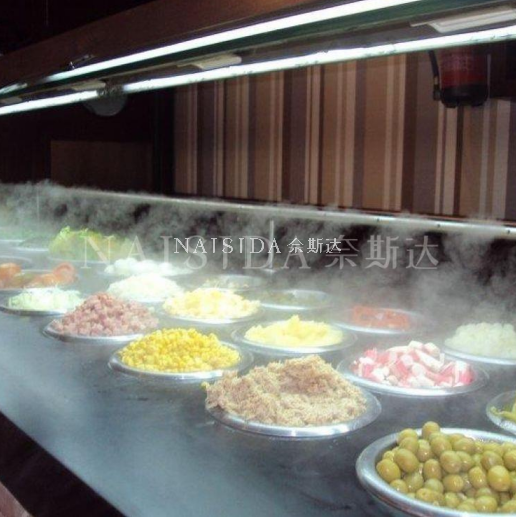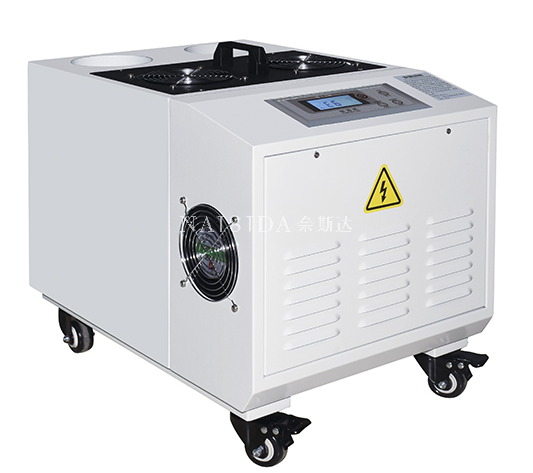
Fresh food is the soul of the supermarket, and fruits and vegetables are the soul of fresh food. The fruits and vegetables that are not fresh in the supermarket will not only easily lead to customer complaints and complaints, but also make customers doubt the freshness of the goods sold in the supermarket. In the end, customers will inevitably lose confidence in the fruits and vegetables in our supermarket. Therefore, we must manage the freshness of fruits and vegetables. To manage the freshness of fruits and vegetables, you must first understand the characteristics of fruits and vegetables. Only in this way can we know ourselves and the enemy, and manage the freshness of fruits and vegetables well. Fruits and vegetables have growth characteristics. From a biological point of view, the growth process of fruits and vegetables is sprouting, flowering, seeding, and withering. The fruits and vegetables sold in our stores are generally picked before they wilt. Therefore, the fruits and vegetables that come to the store are alive and are carriers of life. They will continue to maintain the growth process in the store sales process. Different types of fruits and vegetables and fruits and vegetables at different growth and development stages have different metabolisms, and the strength of respiration is different. Temperature is one of the important factors affecting the respiration intensity of fruits and vegetables. High ambient temperature will lead to vigorous breathing, while low temperature will slow down the respiration of fruits and vegetables, which will affect the freshness of fruits and vegetables. In addition, the humidity of the storage or sales environment is also one of the important factors affecting the respiratory intensity of fruits and vegetables. Proper humidity helps the storage of fruits and vegetables. Usually, the fresh-keeping temperature of fruits and vegetables is between 5 degrees and 8 degrees, but the suitable temperature for bananas, papaya, sweet potatoes, etc. is above 10 degrees (18 degrees to 23 degrees at room temperature). The storage of fruits and vegetables also requires suitable humidity, usually 90% to 95%. However, it should be noted that the humidity of the citrus storage environment cannot be too high, otherwise it will promote its respiration, reduce the juice, reduce the freshness, and make the taste worse.

In view of the fact that most fruits and vegetables need to be stored at low temperatures and suitable temperatures to keep them fresh, fresh supermarkets can use the following methods to manage fresh fruits and vegetables.
Pre-cooling in time after receiving the goods. The store should cool down the fruits and vegetables as soon as possible after receiving them, and put them in the cold storage as soon as possible to keep them fresh. For commodities such as bananas, pineapples, papaya, mangoes, cantaloupes, etc. that do not need to be put in the cold storage, the packages should be opened in time to dissipate heat; for commodities such as corn and edamame that generate more heat, it is best to treat them with ice water. The method is to fill the sink with ice water at 0 degrees, then immerse it in the ice water to cool it down to 7 degrees to 8 degrees. After the water is drained, it can be sold in the cabinet or stored in the refrigerator.

Some vegetables can be resurrected. Some leafy vegetables (such as amaranth and water spinach) have serious water loss under normal conditions. For this kind of vegetables, you can put dehydrated leafy vegetables in a common water temperature tank to absorb water, and the roots should be immersed to revive them, and then they can be sold on the counter. For the displayed fruits and vegetables (only suitable varieties), spray water frequently to increase humidity. Fruits and vegetables on the display racks, especially leafy vegetables, flowers and fruits, will deteriorate and wither faster at room temperature, and they need to be sprayed with cold water frequently to cool down and maintain humidity. After finishing the display of fruits and vegetables, you should pay attention to the changes in their freshness in time. If you do not arrange them, it will weaken the appearance of the fruits and vegetables and easily cause loss, so the store must organize them to ensure the freshness of the fruits and vegetables. Therefore, timely sorting of fruits and vegetables after they are put on the table is an important task for store sales staff.

When the store loads and replenishes the goods, all inspections are required to pick out the bad fruits and vegetables. Before opening, check the quality of the fruits and vegetables remaining the day before, and check the quality of the fruits and vegetables on the shelves that day. Customers picking and pinching the products will affect the freshness, and the quality of the products will deteriorate due to the longer display time. Therefore, sales personnel should arrange and select at any time. If the humidity is found to be insufficient, they must often spray water. It is recommended that the storefronts with conditions can choose vegetable spraying equipment instead of manual water spraying. This equipment will not only work automatically, but also the mist is very fine and uniform. It can also set the working conditions according to the seasonal changes and set the humidity at a fixed time. That kind of local excessive moisture has been the standard in the fresh supermarket chain industry in recent years.
The fruits and vegetables on the counter of the daily store should be “renovated” as much as possible. Stores can reasonably control inventory according to the characteristics of fruit and vegetable products.
For leafy vegetables and other commodities that are not easy to store for a long time, Nissin must be made, and the time and price for clearing must be reasonably arranged. Stores can properly arrange inventory for fruit and vegetable stores that can be stored for a longer period of time through on-site promotion, further processing, contacting partners, and other methods.
The freshness management of fruits and vegetables is very important. Only with good freshness management can the fruits and vegetables operated by our supermarkets be recognized by consumers, thereby promoting the sales of fruits and vegetables and increasing the turnover of the entire store.




